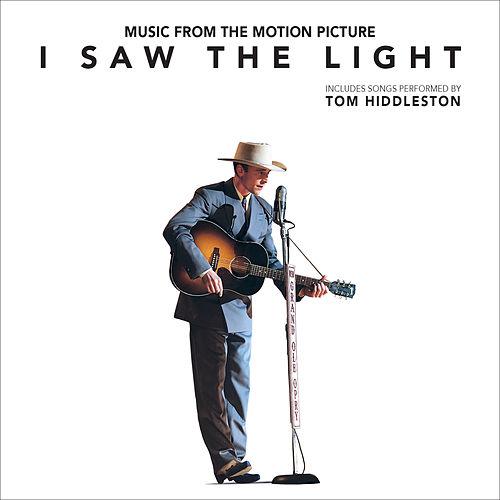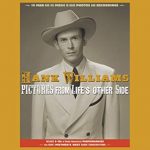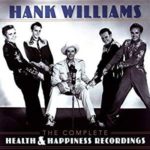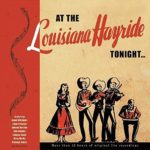Artist: I Saw The Light
Album: I Saw The Light (Original Motion Picture Soundtrack)
Label: Legacy
Release Date: 03/25/2016

Biopics are a tricky proposition. Not only do the lead actors have to be able to effectively impersonate the individuals they’re portraying, but they also need to resemble them and replicate their nuances as well. That’s especially precarious in a film that detects the life of a musical performing where playing and singing skills also have to enter the equation. Coal Miner’s Daughter and I Walk the Line were two of the better examples of how to pull it off, and as a result the films were successful. Likewise, the forthcoming Dolly Parton film, Coat of Many Colors, will prove another test of the cast’s creativity. In the meantime, there’s I Saw The Light; a new box office bonanza that details the life of the legendary Hank Williams, one of the greatest songwriters of the 20th century and the man who successfully rebooted country and western music for modern times.
Ironically, the man who portrays Williams is a lesser known English actor named Tom Hiddleston, whose accent and bearing would seem to suggest that he has little in common with the Alabama icon he’s been chosen to portray. It’s a formidable task to say the least, and if the idea was for him to mimic Williams’ hiccuping singing style, then suffice it to say Hiddleston falls short. Thankfully though he does do a good job of singing the songs, enough so that he carries the role with consistency and credibility.
Consequently, the movie’s soundtrack features him singing seven of Williams’ songs (the better known hits “Hey Good Lookin’,” “Move It On Over,””Why Don’t You Love Me,” “Jambalaya” and “Honky Tonkin’” and also a pair that are less familiar, “My Bucket’s Got a Hole In It” and “That’s What Knocked Me Out”), along with half a dozen tunes sung by the artists that had those hits in his day (Eartha Kitt’s “Santa Baby,” George Morgan’s “Please Don’t Let Me Love You,” Emmett Miller’s “Lovesick Blues,” Jo Stafford’s “Tennessee Waltz,” Eddie Arnold’s “Anytime” and the Delmore Brothers’ “Field Hand Man”). It’s a mixed bag to be sure, but one that captures the essence of these sepia tinted times before music gained much of its current sophistication and Americana was a word that had yet to be coined. It all fares well, and while some might have hoped for Williams’s original renditions, Hiddleston and the backing band, performing under the collective handle the Saddle Spring Boys, do a credible enough job to ensure some degree of authenticity. Much of that credit is due to an all star assemblage, featuring musical director Rodney Crowell and the cream of Nashville’s session scene lending their savvy and support.
Granted, it might be best to see the movie or read up on Williams to fully appreciate the score entirely. Only a few of these numbers are going to be familiar to most modern music fans. Still, anyone with a reverence for country music and how it was shaped over the course of the last century ought to at least have some academic interest in this soundtrack. Williams’ troubled spirit lives on in his music and this music is his lasting legacy.
– Lee Zimmerman







Be the first to comment!